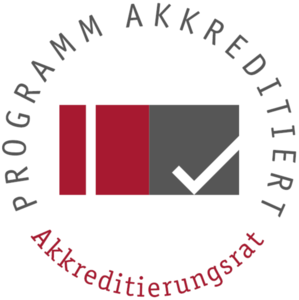With a degree in Social Work and Health, you will have a wide range of promising fields of activity open to you. Your tasks will include supporting, guiding and counselling people in various life situations, promoting social participation, developing and implementing prevention and intervention measures and collaborating with other professionals and institutions. You will work with individuals, groups, neighbourhoods or communities using social work concepts such as case management, empowerment, solution-oriented counselling or social space orientation.
The following fields of activity are open to you after graduation:
Child and youth welfare: You support children and young people and their families in difficult life situations, promote their personal development and help them to develop prospects for their future. This can take place, for example, in youth welfare offices, outpatient support centres, residential groups, school social work or other educational institutions.
Psychosocial counselling and support: You will work with people who need support due to mental illness, social problems or personal crises. This includes counselling, crisis intervention and referral to further help, e.g. counselling centres, schools, street work, clinics, general social services and women's or men's shelters.
Counselling centres: You offer counselling and support in various areas such as addiction counselling, debt counselling, marriage and family counselling and migration counselling. The aim is to support people with social problems and in crisis situations, to empower them and to find individual solution strategies together to show them ways out of the crisis.
Community work: You will work with residents of neighbourhoods, communities or social hotspots as well as with various institutions. Your aim is to promote social and cultural participation, foster cohesion in the community, initiate and support self-help groups and carry out social projects.
Rehabilitation: In rehabilitation, you help people with physical, mental or psychological impairments to lead an independent and fulfilling life again. This can take place in rehabilitation clinics, workshops for disabled people or outpatient services.
Healthcare: Here you will work in hospitals, psychiatric wards, residential facilities or health centres and support people in overcoming their health and social challenges. You will promote health literacy and help organise aftercare and rehabilitation.
Intergenerational work and work with older people: Through social planning, neighbourhood management, individual and group counselling, you will actively shape demographic change and improve the quality of life of older people in the long term. You will work in district offices, multi-generational houses and advice centres, for example.
Social institutions and organisations: You can work in various social institutions and organisations that look after the interests of disadvantaged or needy people. Your work will focus on humanitarian support, the promotion of human rights and education and awareness-raising. These include charities, foundations, non-governmental organisations (NGOs) and other social services.
The course gives you the opportunity to gain further qualifications on a Master's degree course or to specialise in specific areas of social work and health. The practical training and close cooperation with regional and international organisations provide you with a solid foundation for entering the world of work directly or developing your professional career with additional qualifications.














Study Service Centre
+49 3631 420-222
House 18, Level 1, Room 18.0105